How to Avoid End-Time Deceptions Resulting from the Latest Technologies
GAiN Africa presentation prompts attendees to consider pitfalls, opportunities for church mission.
December 14, 2023 | Johannesburg, South Africa | Marcos Paseggi, Adventist Review
A plenary presentation during the Global Adventist Internet Network (GAiN) Africa Conference in Johannesburg, South Africa, called on Adventist communication leaders to learn about new technologies with a mission-driven mindset.
The December 7 presentation by Michael Peechatt, a Seventh-day Adventist former Apple software engineer and artificial intelligence (AI) specialist, sought to emphasize how new technologies can help communicators streamline and speed up the mission of sharing the gospel to the whole world.
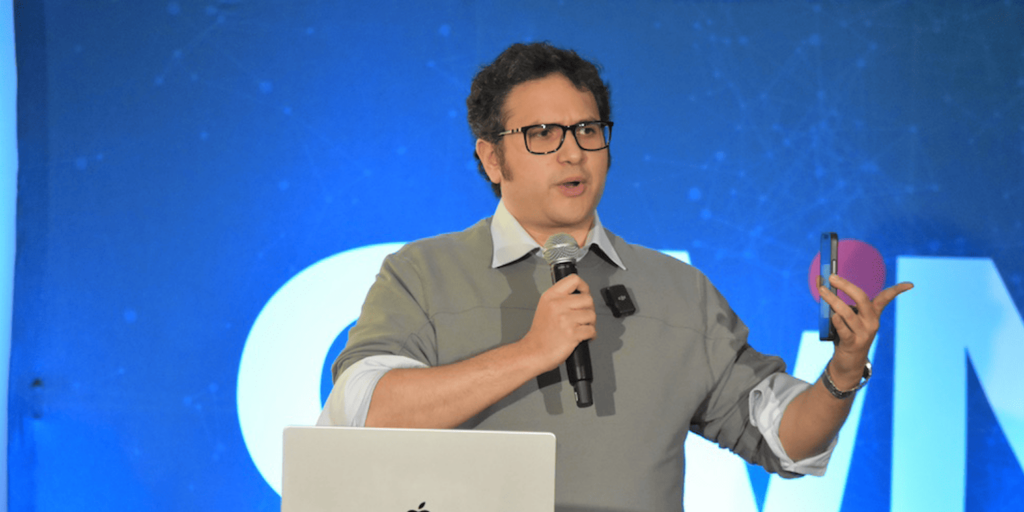
Software engineer Michael Peechatt reflected on the ramifications of the latest artificial intelligence technologies and their implications for mission at the GAiN Africa Conference in Johannesburg, South Africa, December 7. [Photo: Marcos Paseggi, Adventist Review]
A Peculiar Life Story
In the first few minutes of his presentation, Peechatt shared what he called his “crazy” life story, which he believes informs what he is doing right now. He shared that his father is a former Catholic priest from India and his mother a Colombian, and they met in New York City. Even though he was raised in a Christian home, Peechatt concluded while he was growing up that Christianity and the Bible were a control mechanism to force people to act in a certain way and to force the government to control the population. “Little did I know that where the Spirit of God is, there’s liberty,” Peechatt said.
He shared how, eventually, his southern Indian roots led him to learn and reflect on the Christian legacy in his father’s ancestral land. According to traditional accounts, Thomas, one of Jesus’ disciples, reached southern India in AD 52 to preach the gospel.
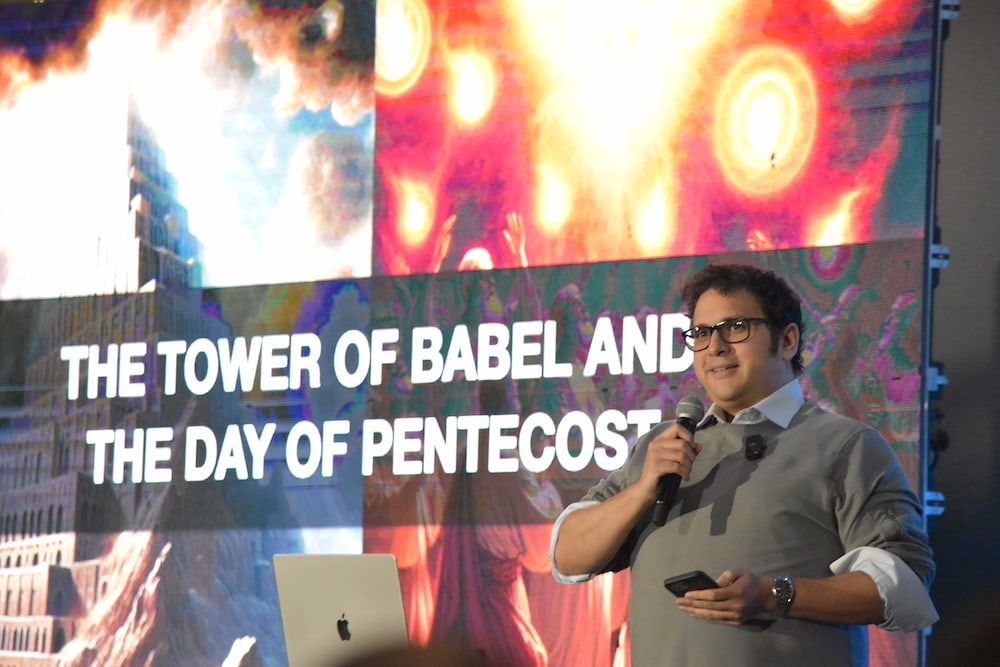
The Bible stories of the tower of Babel and Pentecost are the probably the greatest communication stories ever recorded in the Bible, Michael Peechatt said. [Photo: Marcos Paseggi, Adventist Review]
In his case, this journey eventually connected him with the writings of Seventh-day Adventist church co-founder Ellen G. White and the Seventh-day Adventist Church.
Babel versus Pentecost
In the next part of his presentation, Peechatt contrasted the tower of Babel and the Pentecost stories to reflect on the implications for contemporary communication for mission.
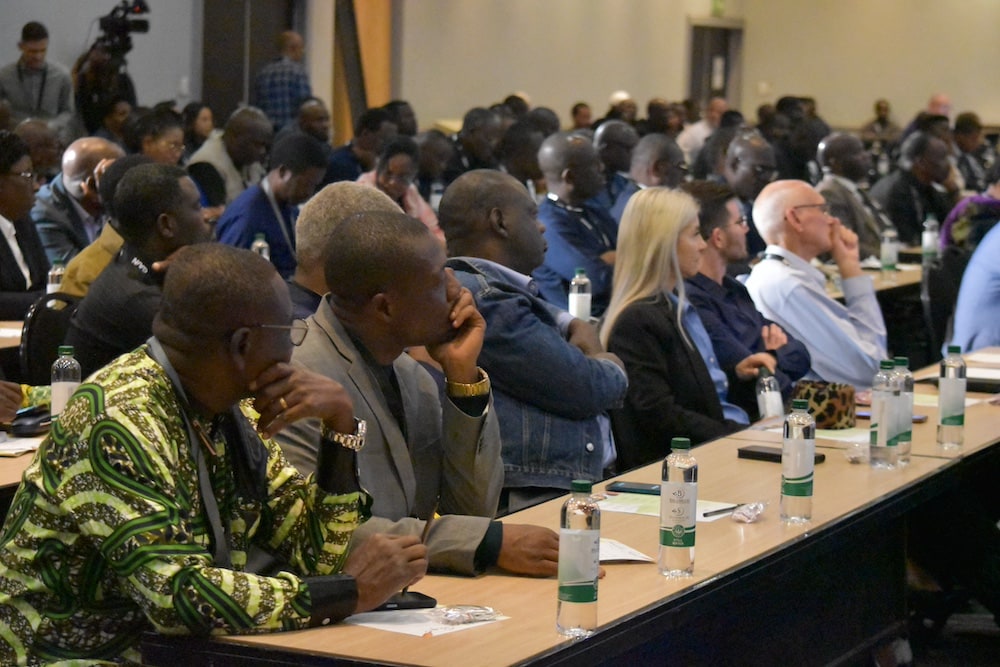
Participants from across Africa listen to Michael Peechatt’s presentation on the mission implications of new technologies at GAiN in Johannesburg, South Africa, on December 7. [Photo: Marcos Paseggi, Adventist Review]
It is a key difference as we engage with the latest technologies, Peechatt emphasized. “If we do our own works, if we separate ourselves from God, we can end up rejecting the cornerstone, which is Jesus.”
Trusting Technology or Christ
Against that theological background, Peechatt then delved into some technical aspects of the latest developments in AI generation, machine learning, statistics, and their implications for life and ministry.
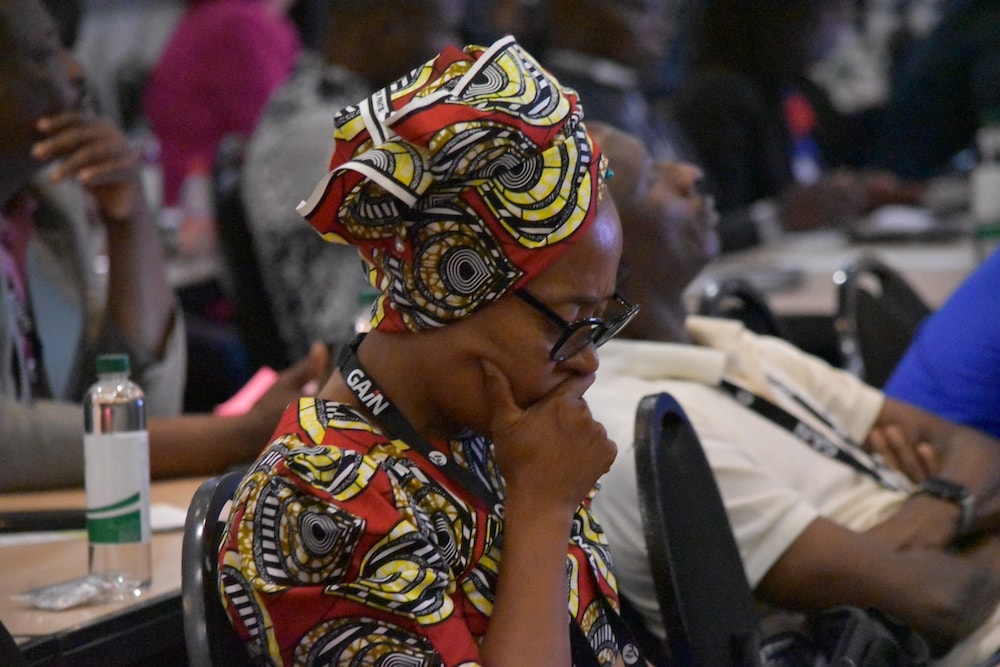
An attendee follows Michael Peechatt’s presentation, in which he appealed to Adventist communicators to learn about new technologies that support the mission of the church. [Photo: Marcos Paseggi, Adventist Review]
In the more technical part of his presentation, Peechatt discussed how scientists are building on decades-old language models to take AI to new heights. He traced the development of AI from n-grams, which could predict the next word and the sequence of words based on training data. He eventually discussed ChatGPT, a much more advanced way of following a similar pattern.
“These are just tools, not different than a computer or a calculator, and yet, we have some very practical ramifications,” Peechatt said. “In ministry, you can use generated images for slides, for using them in social media, etc. But my advice is that you don’t use those images just as they are. Use them as a starting point,” he advised.
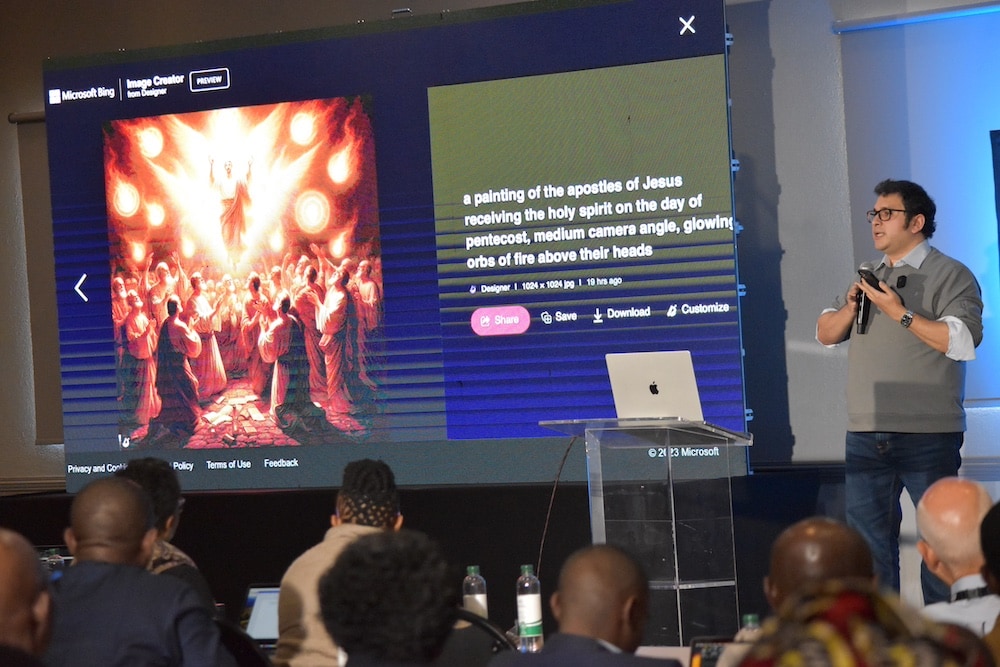
Michael Peechatt discussed how use some of the latest artificial intelligence technologies for mission, and what pitfalls to avoid, at the GAiN Africa Conference in Johannesburg, South Africa, December 7. [Photo: Marcos Paseggi, Adventist Review]
End-Time Deceptions and Technology
At the same time, Peechatt said, the more we understand how these tools work, the less prone we will be to some of the deceptions that will come. “And because our mission is to preach the gospel, we should be at the forefront of these tools. We should be learning how they can be developed, how they can be applied, so we can avoid being deceived.” He quoted Ellen G. White’s book The Great Controversy, where she wrote, “Satan has long been preparing for his final effort to deceive the world.… Little by little he has prepared the way for his masterpiece of deception in the development of spiritualism. He has not yet reached the full accomplishment of his designs; but it will be reached in the last remnant of time.”
Peechatt shared that when he first read that statement years ago, he had some doubts. “Spiritualism? Isn’t the world becoming more atheistic?” he wondered. But with the latest advances in technology, he has come to understand that statement better, he said, including technology that lets people “speak” to their dead relatives through digital clones.
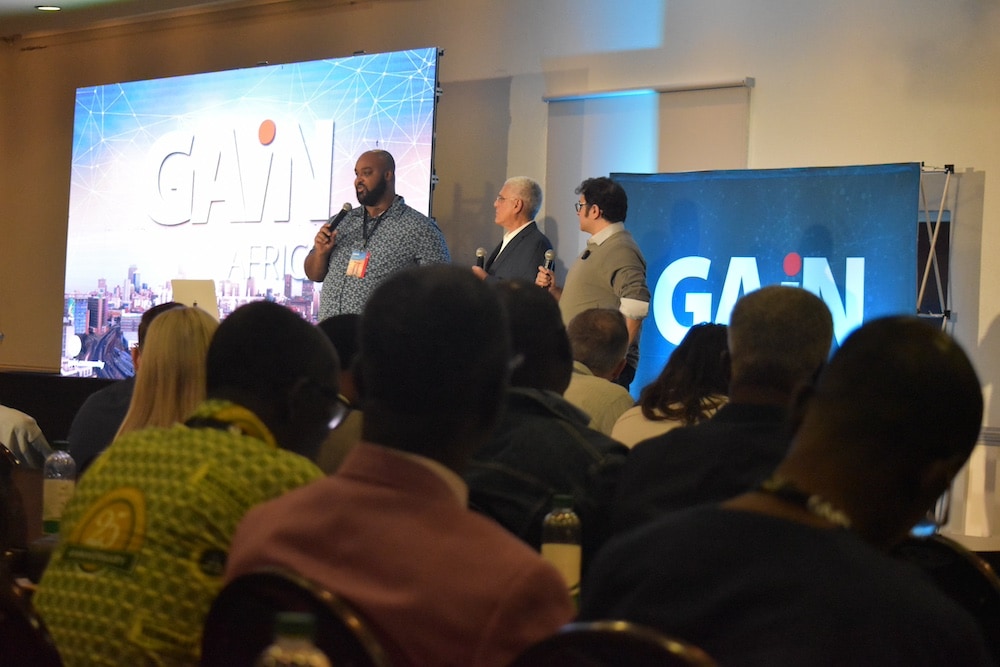
Artificial intelligence experts Emmanuel Arriaga and Michael Peechatt answer questions from GAiN Africa participants in Johannesburg, South Africa, December 7. [Photo: Marcos Paseggi, Adventist Review]
For this reason, Peechatt called for focus on personal contact and witnessing to share God’s timeless message beyond the technologies of the day. “Don’t over-engineer your message,” he said. “Beyond any technology, be a leader for Christ.”